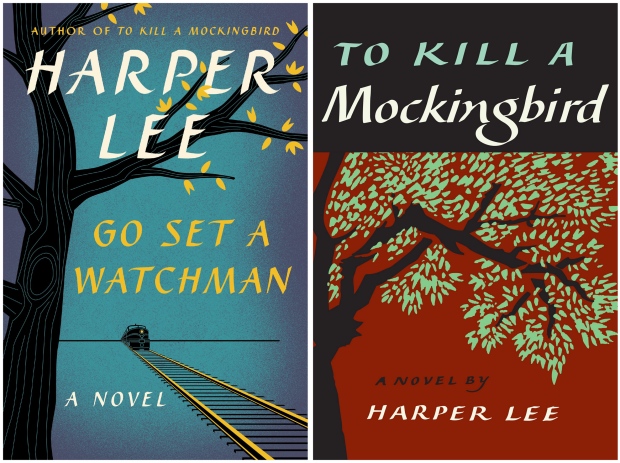Spoiler Alert! If you want to read Harper Lee’s new/old novel, Go Set a Watchman, and be surprised, stop reading this now. Come back after you’ve read the novel, to see if you agree with this commentary.
As the New York Times reports today, the book itself is another kind of spoiler. Atticus Finch, the widely beloved hero of Lee’s To Kill a Mockingbird, turns out to harbor racist ideas, thereby forcing both his adult daughter and readers of the novel to grapple with what seems to be a conundrum.
I’m glad that the new book was published, and I’m curious to see how readers will come to terms with the newfound complexity of a fictional character previously held up as an exemplar of fair-minded compassion. I hope that they, and we collectively, will learn to attribute goodness or badness to particular actions rather than to people. I fear that they, and we collectively, will remain stuck in a way of thinking that tends both harm survivors of violence and inhibit efforts to intervene in the causes of violence.
How many hundreds, thousands, millions of times has it happened that family members have refused to accept the testimony of a victim of sexual abuse because they could not fathom that the “good” father, grandfather, brother, or uncle they knew could do such a thing? And, how many times have activists’ efforts to get people to confront their own participation in hurtful practices floundered because people’s sense of their own goodness prevented them from being able to perceive their complicity in bad things?
As I wrote in The Oxen at the Intersection, both efforts to provoke white people to see white privilege and efforts to forces consumers of “happy meat” to see the cruelties implicit in ostensibly “humane” animal agriculture can run aground because of a cultural tendency to see people, rather than actions or systems, as good or bad:
This kind of either/or thinking, in which goodness is thought to be an attribute of people rather than of acts, and innocence is considered to be synonymous with victimhood, often makes it difficult for people in the United states to discuss complex current events constructively, much less grapple with the living legacies of genocide and slavery here at home.
In this way of thinking, people are either good or bad. Good people don’t do bad things. Victims are always innocent. Innocent people do not victimize others. This way of thinking makes it difficult to talk about, or even perceive, the real world in which people are perfectly capable of doing both good and bad things (and usually manage to do both by noon each day). in the real world, perpetrators of bad acts also may be victims, and victims very frequently go on to victimize others.
This way of thinking also makes it difficult for people to perceive structural oppression, which often is perpetuated by people who hold no personal malice towards those who are hurt, and to think intersectionally. Intersectional activism requires us to be aware that individuals (including ourselves) tend to be simultaneously advantaged in some ways while disadvantaged in others. When we confuse disadvantage for innocence, conflate innocence with goodness, and then presume that individuals are either good or bad, that makes it very hard to see and intervene in the interlocking structures of oppression perpetuated by partly-good people going about their everyday lives.
All of which is to say that I hope readers of Go Set a Watchman won’t take the easy way out by treating the Atticus Finch in the two novels as two different people. I hope that, instead, they will practice the compassion preached by the Atticus of To Kill a Mockingbird by putting themselves in the shoes of an adult daughter who must somehow come to terms with a man who really did behave kindly and decently in two important respects (defending the falsely accused Black man and advocating compassion for neighborhood outcast Boo Radley) and really does hold ugly beliefs about Black people.
That might help us, collectively, to break out of the either/or way of thinking about personal goodness. Meanwhile, animal advocates will need to continue to be mindful of that way of thinking, both taking it into account when crafting our rhetoric and being aware of (and challenging) it in ourselves.





Your readers might be enriched by reading this excellent essay titled “I, racist” by John Metta. https://thsppl.com/i-racist-538512462265
I referenced this essay in my most recent blog post and also attempted to excavate some of the factors that seem to perpetuate our “innocent” participation in oppression. http://veganelder.blogspot.com/2015/07/i-racist.html
Thank you much for this post. Moving from either/or comprehending to and comprehending is made more likely when “de-invisibling” is applied.
Because while I enjoyed TKAM, I found the main characters more interesting and multi-dimensional in this first draft of the story. And I suppose because I didn’t grow up with Atticus as a personal literary hero of mine, the depiction of him as a regular flawed human being was refreshing rather than heart breaking. I’m also hopeful that this new/old novel will continue the dialogue it’s already sparked.
Harper Lee did a good job. Twice. Just wish she had written more.